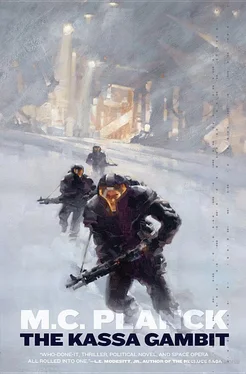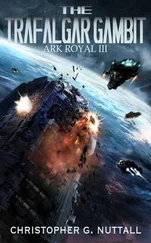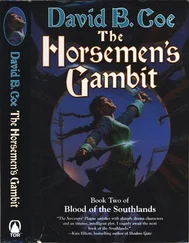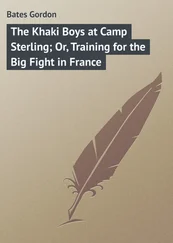He refilled his wineglass.
“Like anything good, these salts are not easy to manufacture. They require stellar furnaces. It is much cheaper to simply mine them from planets in the old parts of the galaxy, where nova after supernova has poisoned the worlds with heavy metals. But stars are not factories. They are not vats, controlled for purity. They contaminate everything they make with their own private signature, their own particular concentrations of trace elements. From an analysis of these traces, we can conclusively state that the shattered glass of your little alien ship was first formed on an industrial planet not too far from here, by the name of Baharain.”
An unpleasant place. Prudence had visited it once, but couldn’t afford to buy a trader’s license. A few large fleets had a monopoly on the traffic, and the local government seemed content with the situation. “What does that mean?”
“It means that someone on Baharain is equipping the enemy. It means I was right. There may be aliens, but the only threat is people. As always. And, as always, I already know who those people are. Or at least, one of them.”
How could he get all that from a sliver of glass?
“Did you know our prime minister is an immigrant from off-world?” Jandi asked, as if it were relevant.
“I heard as much,” she said, thinking of the cabbie’s rant.
“I’ll give you exactly one guess which planet he’s from.” Jandi smiled, a sad, crinkled comment on the relentless duplicity of mankind.
Prudence put down her wineglass. “Who do we tell?”
“We?” Jandi raised his eyebrows. “You don’t tell anyone. They will kill you, Prudence. They will kill me, too, but that hardly matters now. I will go public with your splinter, pretending that I received it from one of the scientists studying the wreck. They will disavow everything, of course, calling me a foolish old man merely seeking attention, and trot out their own experts to contradict me. The leak will justify increased security, leading to a purge of anyone not wholly in their pocket. Eventually they will replace the glass in the wreck so they can release public samples, thus proving that radicals like me can’t be trusted. And of course, at some point in these events I will have an unhappy accident.”
Jandi’s catalog of futility was impressive.
“Then why try?”
“Because, my dear, it’s what I must do. Having to discount me will cost them credibility. Purging their staff will cost them competence. Releasing a public sample will set a precedent. That is the problem with these people. They have no principles to guide them, merely a destination. They will paint themselves into a corner, eventually, and then the rest of the world will have one chance to fully see their destination is a dead end. Historically speaking, the people are unlikely to utilize that opportunity to protect their freedom, but that’s not my problem. I’ll be dead by then, even without the League’s helping hand.”
“Unlikely, but not impossible.” She needed to believe that.
He smiled at her again, repeating his earlier sadness at self-deception, but his voice was gentle. “Have you joined the Cult of Transcendence, too? Do you think that somewhere out there, human beings have finally found a technological fix for human nature?”
She had never shared the hidden nature of her medallion with anyone. Her father had passed it to her as a sacred trust, a secret he had kept for sixteen years. Sometimes she hated him for that. If he had sold the damn thing, he might have been rich enough to escape before the cataclysm devoured his world. But once it came, no amount of money was enough. In a sea of madness, even hard cash sunk without a trace. The medallion, unable to change reality, had become merely a symbol that a better world was possible.
Now she needed help in believing the dream.
“I know they’ve found something, Jandi.” She opened the wire locket, taking the medallion in her hand. Professionally interested, he watched her with eyes like microscopes.
Pressing on the medallion, she extended the blade. Gently she moved it across her ceramic plate. The dish did not change, still holding a puddle of carrot juice. Only a thin line through the white pottery testified that she had done anything at all.
Jandi reached out and gently tapped one half of the plate. Disturbed, it jiggled, the crack widening into reality, no longer watertight. Bright orange juice dribbled onto the table.
Heedless of the mess, dumping food onto his tabletop, he picked up the plate and critically examined the cut.
“Don’t touch it,” she warned. “It could be sharp.” The molecular edge of her knife made even ordinary objects dangerous.
He dragged a napkin across the edge. The cloth fell in two pieces. But when he repeated the experiment, nothing happened.
“I’m afraid I’ve just polished my atomic evidence out of existence.” Picking up the other half of the plate, he did the same. “Let me get you another plate, dear. Don’t bother to clean it up, just move to a new chair.” The table was large enough to seat a dozen people. “Remarkable,” he said, when he came back from the kitchen with a clean plate. “All those years I wasted flying around in space to find alien artifacts, and the only one I’ll ever see walks through my front door.”
“It’s not alien,” she said defensively. “I got it from my mother.”
“Did she say where she obtained it?”
Prudence bit her lip. “I never met her. She died when I was an infant.”
“May I?” he asked. Prudence put the medallion in his open palm. “Can you show me?”
She touched it delicately, with one finger. “Here, here, and here. Not anywhere else. It’s very hard to do, though.”
Jandi fumbled with the medallion for a moment, and then the blade slid out. Prudence caught her breath in surprise.
“A misspent youth,” he grinned. “I used to hustle vid games in bars, when I was a boy. I’ve kept up the dexterity through constant practice. On the odd chance I could win a bet, or impress a pretty girl. But I agree: it is not alien. It is too perfectly designed for the human hand. So somewhere out there a world is making nanotech pocket knives. And your mother…?”
“I don’t know. My father was a baker. He never went more than fifty kilometers from the apartment block he was born in. She was a traveler…”
She had been a spacer, a wanderer, a free spirit that flitted unanchored through the galaxy, working her passage on an endless succession of stray freighters and liners. Something about Prudence’s father had caught her, and she had fallen for the last time into the gravity well of a planet, to bud and seed like a tumbleweed taken to root.
Within a year she was dead.
Prudence had been the only thing her father had left of his beautiful star-crossed bride. He had married again, because that is what people do. He had loved his new wife, and the children they made; he had been a dutiful husband, a loving father, a good man. He had built a normal life. When he tried to tell Prudence the stories her mother had told him, the places she had been and the sights she had seen, it was as if he was relating a fairy tale that he had read in a book. Only when he had shown her the medallion had it become real to her. Only then had she seen the memory of grief in his eyes.
A few stories, a medallion, and the legal status as half off-worlder were all the inheritance he could pass on to Prudence. The thing she envied the most, the time that he had spent with that wonderfully exotic person, could never be shared.
When his homeworld of Strattenburg had burst into self-immolation, Prudence had fled in helpless despair. Only her status as half off-worlder had let her escape the clutches of a mad bureaucracy. Only the invisible beacon of her mother’s world had given her direction, kept her moving on an uncharted course instead of drifting aimlessly.
Читать дальше









